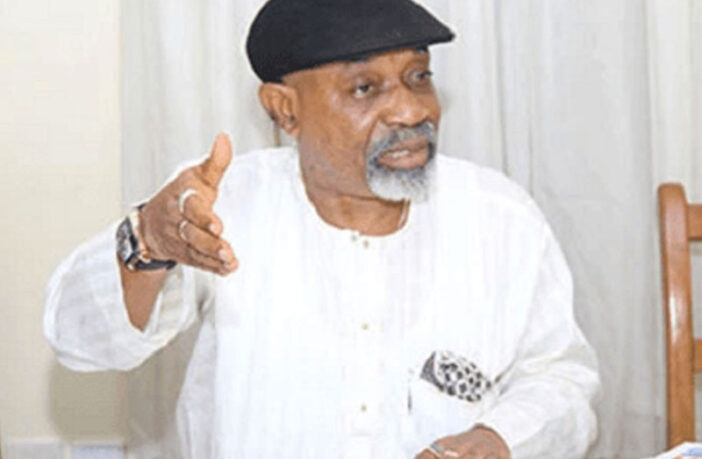The Federal Government has solicited Organised Labour’s collaboration in the quest for socio-economic recovery from the negative impact of the COVID-19 pandemic in the country.
Sen. Chris Ngige, Minister of Labour and Employment, at a bilateral meeting between the Federal Government and Organised Labour on Tuesday in Abuja, emphasised the need for stakeholders to fashion out how the country would survive the COVID-19 era.
“We are faced with the new normal way to survive as human species and can only hope to build back a better society that would sustain us and aid us in our quest for recovery, both physically and structurally.
“To achieve success, we need all hands on deck. We need transparency in action and effective and efficient communication between the government and the people, particularly labour, a vital arm in the means of production,” he said.
The minister noted that the society was undergoing socio-economic transition due to upheals caused by the COVID-19 pandemic which had affected price stability and major means of production.
Ngige called for understanding to forge a social pact or social conversation to enable the country to reconcile the economic growth and realisation of a sustainable development built on social cohesion.
Mr Ayuba Wabba, President of the Nigeria Labour Congress (NLC), in a remark, noted that the recent hike in cost of fuel and electricity tariff had aggravated the economic hardship facing Nigerians.
Wabba said that Nigerian workers, who had lost their jobs and means of livelihoods due to COVID-19 challenges, were being forced to make further sacrifices through an unbearable increase in prices of fuel and electricity tariff.
He said that the recent twin increase had only worsened the plight of workers on fixed wages, adding that the situation had eroded the gains of the minimum wage.
Mr Quadri Olaleye, President of Trade Union Congress (TUC), said that Nigerian workers were not happy about the current socio-economic situation in the country, especially the recent increase in electricity tariff and fuel pump price.
He also noted that workers in the country were losing about 15 per cent of their wages as a result of the various price hikes.
Olaleye called on the Federal Government to do the the needful as workers were facing a lot of hardship.
Mr Timipreye Syiva, Minister of State for Petroleum Resources, in a presentation, said Nigeria lost an average of N1 billion daily between 2016 and 2019 as a result of fuel subsidy, and N3.74 billion daily, before 2016.
He also said that Nigeria lost N10.4 trillion to fuel subsidy between 2016 and 2019.
The minister said that Nigeria’s economy had not been well for a while now, adding that it had become incumbent on all to join hands to salvage the situation.
According him, every successive administration in the country has come to realise that subsidy is not good for the economy.
“Mustering the political will to implement deregulation policy has been the problem,” he said.
The minister explained that in spite of recent moves by government to introduce market pricing of fuel, Nigeria had not fully deregulated due to government’s concern for the people.




